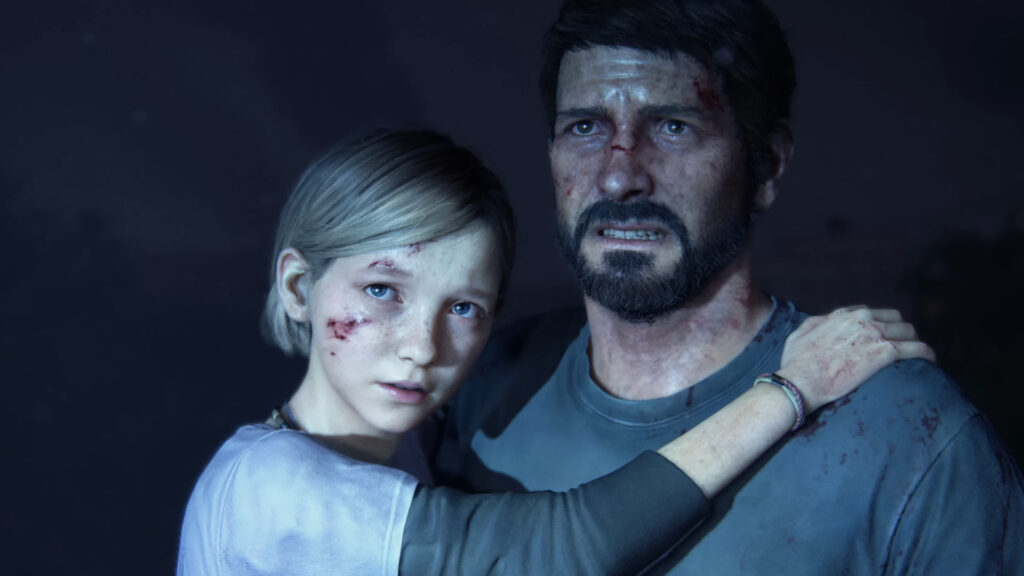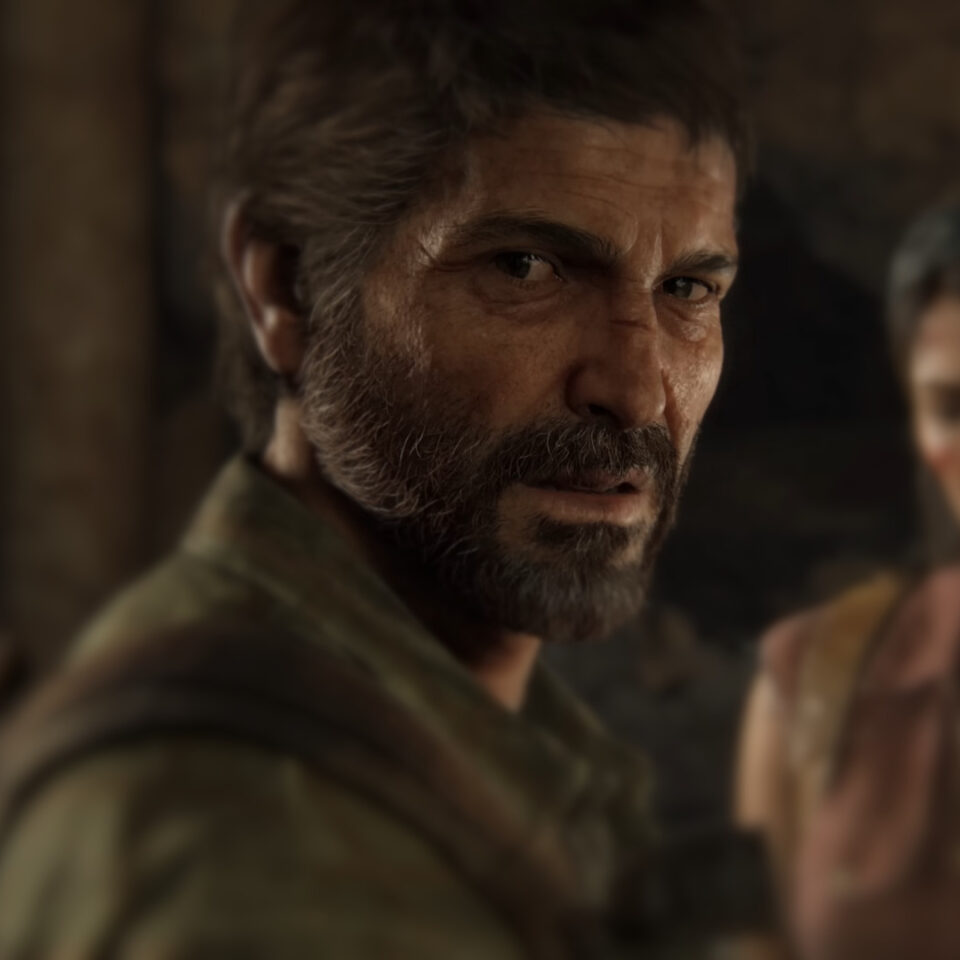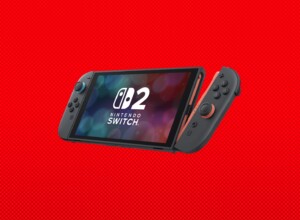I was talking with another dad a few days ago, about that old cliché, “Now that I’m a parent”.
“Now that I’m a parent,” one of us said, referencing a terrible news story in which a nine-year-old girl was shot and killed in Liverpool, “that sort of thing just hits you harder, doesn’t it?”
I can’t even recall which of us said it to the other, but we were both thinking it. Our sons, both toddlers now (where has the time gone!) have drastically changed our lives and our outlook, as having kids does for everyone. That old cliché really does ring true.
Which, in a roundabout way, of contemplating that agonising, senseless morbidity, got us talking about video games. More specifically, about the remaster/re-remaster/remake of The Last of Us, recently rebuilt in Part 2’s engine and now stylised as The Last of Us Part I, spruced up and trotted out on its third generation of PlayStation hardware, the PS5.
We covered all of the usual talking points – what Part 2’s engine will bring to the party, the welcome addition of those accessibility features, whether it’s worth triple-dipping on any game, and, yes, that £70 price tag – but in the end we couldn’t get away from that cliché, that shift in our own perspective.
“Now that I’m a parent,” said the other dad, as if reading from a script, “that sort of thing just hits you harder, doesn’t it?”
He was, of course, referencing the events from The Last of Us Part I’s prologue, of the outbreak, the panic, the mad dash for safety, and of Joel Miller, kneeling in the dirt, holding his daughter, Sarah. And he’s not wrong. That opening salvo, the game’s inciting event, is gut-wrenchingly sad, and as cliché as fridging might be in narrative terms, it just feels a thousand times worse when you can see yourself in Joel’s shoes. Which is why what comes next in the game – Marlene’s foisting of Ellie onto Joel; his grief-driven desire to keep the girl at arm’s length; and his ultimate softening into his ersatz father role after numerous near-death experiences – is so troubling a view of fatherhood.

It has been written, at great length, about the “dadification” of video games. Of how the current cohort of senior figures in the games industry, who find themselves in charge of studios, are now fathers. (Let’s not start on the gender disparity at play here; that’s a different discussion.) Joel and Ellie in The Last of Us from Neil Druckman; Booker and Elizabeth in BioShock Infinite from Ken Levine; Kratos and Atreus in God of War from Cory Barlog; James and the Lone Wanderer in Fallout 3 from Todd Howard; Ethan and Jason in Heavy Rain from David Cage; Sam Porter Bridges and the Bridge Baby in Hideo Kojima’s Death Stranding – all of these games were written and helmed by men, in middle age, building narratives around fatherhood, or at least, some notion of childrearing and guardianship. (The only notable exception I can think of is Clementine in Telltale’s The Walking Dead, who, as far as I can tell, was based more in art director Derek Sakai’s experience of parenting than the game’s writers, Sean Vanaman and Jake Rodkin. But the point still stands – it is still very much a sad dad story.)
And now that I’m a parent, honestly, it’s hard not to be unsettled by it. We’ve already touched on Joel and Ellie’s story, but just look at that rogue’s gallery of sad dads and their awful stories. Booker DeWitt gives away his infant daughter to clear his drinking and gambling debts in BioShock Infinite. Kratos resents his son all the way through 2018’s God of War reboot, only relenting in time to become afraid of him in the game’s final scenes, instead. The lone wanderer’s dad (voiced by Liam Neeson, no less, for extra sad dad points) abandons his kid into Vault-Tec’s questionable custody to try and build a massive Brita filter in Fallout 3. The ghastly notion of Bridge Babies and the image of Norman Reedus carrying one as little more than a tool, a Geiger counter for dead things in Kojima’s Death Stranding. And Ethan, from Heavy Rain, who loses his son at a shopping mall, ultimately resulting in his little boy’s death, then later, has his other son abducted by the game’s serial killer antagonist. Imagine asking your husband/partner what they’re working on, and them telling you that’s the storyline they’ve come up with, “now that I’m a parent”.
Heavy Rain is perhaps even more disturbing because writer and director David Cage (real name, David de Gruttola) actually cast his son, Quentin de Gruttola, as one of the motion capture performers for Jason. Sticking your child in a ping-pong-ball suit and pretending to run them over on camera is like no bring-your-child-to-work day I’ve ever heard of. And, apparently, the cut version of the car crash is even more graphic than the one used in-game. Makes me shudder just thinking about it.
All of these games and characters are borne from the notion of parenthood and of a midlife crisis, coming of age moment from their creators, mixed with that ever-present desire for video games to be taken seriously when compared with cinema and prestige television. They’re all designed to elicit that “now that I’m a parent” response, but do you know what? Now that I’m a parent, I’m really just perplexed by the idea that those examples above are as a result of the impact parenthood had on those men, and a little concerned that video games don’t feature more positive parental role models. (And I specify “parental” there rather than singling out the fathers because, for the most part, mothers are killed off before the story even starts. I can’t actually decide what’s worse: the absence of motherhood as a base concept, or the twisted visions of fatherhood we’re repeatedly subjected to.)
Which is why video game fathers need to draw less from that cursed deck, that rogue’s gallery of paternal misfires and twisted influences, and instead, pull on some positive role models. Like Bandit Heeler.
I say that like it’s a given, that you’ll know who Bandit Heeler is, but unless you have a kid under the age of… let’s say eight or nine, you’ll likely have no idea who I’m talking about. But such is the phenomenon, the cult of Bandit Heeler’s parenting, you will have heard about the TV show in which he exists and the enormous following it commands: Bluey.

Bluey is an animated TV series from Queensland-based Studio Ludo, produced by the Australian Broadcasting Corporation and the BBC, with Disney+ holding global streaming rights. It features a family of anthropomorphised dogs – Bluey, aged six; Bingo, aged four; mum, Chilli; and dad, Bandit – and the mixture of imaginative play and real life challenges that surround childhood and parenthood alike. And it is, without hyperbole, probably the best thing on television. (You think I’m joking, but the weebs had to review bomb it to drop it down the rankings on IMDB, such is its power.)
And that’s not in the sense that it’s childish noise and bright colours for the littles, with a few “adult” jokes and scenery-that-looks-like-a-cock-and-balls thrown in to make the parents snigger. It is, consistently, week after week, a legitimately brilliant piece of telly, childrens or otherwise. Many a fraught night of teething or nursery bugs has seen me heavily invested in a Bluey marathon, not realising my little boy fell asleep in my arms several episodes hence. (Required watching, for the uninitiated: Flat Pack, in which Bluey and Bingo create an evolving civilisation from IKEA packaging; or Bike, where Bluey learns the importance of perseverance; or Sleepytime, a surrealist dream where Bingo resolves to spend the whole night in her own bed; or Camping; or Baby Race; The Beach; Copycat; Takeaway; Dance Mode; Bingo; Rain; Fairytale… honestly, it’s all just so good.)
What’s interesting about Bandit Heeler, specifically, is that he was created as an antidote to so many rubbish dads in cartoons. Bluey’s creator, Joe Brumm, originally planned an Australian version of Peppa Pig, remixed for Aussie sensibilities, when he realised that Daddy Pig was a fundamental issue at the heart of the show. In the grandest tradition of oafish, clumsy, useless dads, from Fred Flintstone to Homer Simpson, Daddy Pig is, at best, present, and at his worst, making an absolute meal out of pretty much everything. And while there is obviously humour to mine in that seam, it’s important that 21st Century portrayals do dads justice. We wouldn’t stand for sexist portrayals of mothers, rooted in the housewife stereotype of the 1950s, so why is it any different for dads? Why should they be stuck in the absent, comma, may as well not be there when they do turn up trope?
Now that I’m a parent, I guess I’m just more aware of that sort of thing. Which brings me back around to my original point. Why, when it was decided that all video game dads must be sad, brooding types, and that awful things must happen to their kids for them to step up as parents, did we just take that as read? Why have we carried on swallowing that perception of fatherhood as the default position for video game parenting? I’m sure I bought into it before I became a dad – and I dearly love The Last of Us, still, in spite of all that – but now that I’m a parent, with a little experience of my own, I’d really just rather we didn’t.
In many ways, I’m over the dadification of games in general. I’m sure many people are. It would be interesting to hear stories from different perspectives, for one thing. Perhaps we don’t have to heap agony onto a child in order for the father to step up, or, get this, maybe the stories could be about motherhood? (Though a word of warning: the answer to how to progress your narrative without fridging women is not just to fridge men, instead. I’m looking at you, Naughty Dog.)
But the tastemakers set the agenda. And while studios are predominantly helmed by dad-age men, we are going to get stories of fatherhood running as a current through our video games. So if we must have video game dads, could the dads be a little less reluctant and/or terrible? If we can’t tell different stories, then maybe some video game developer version of Bluey’s Joe Brumm could at least give us some better dads to latch onto.
Now that I’m a parent, what I’d really like to see is video game dads be less like Joel Miller, and more like Bandit Heeler.






